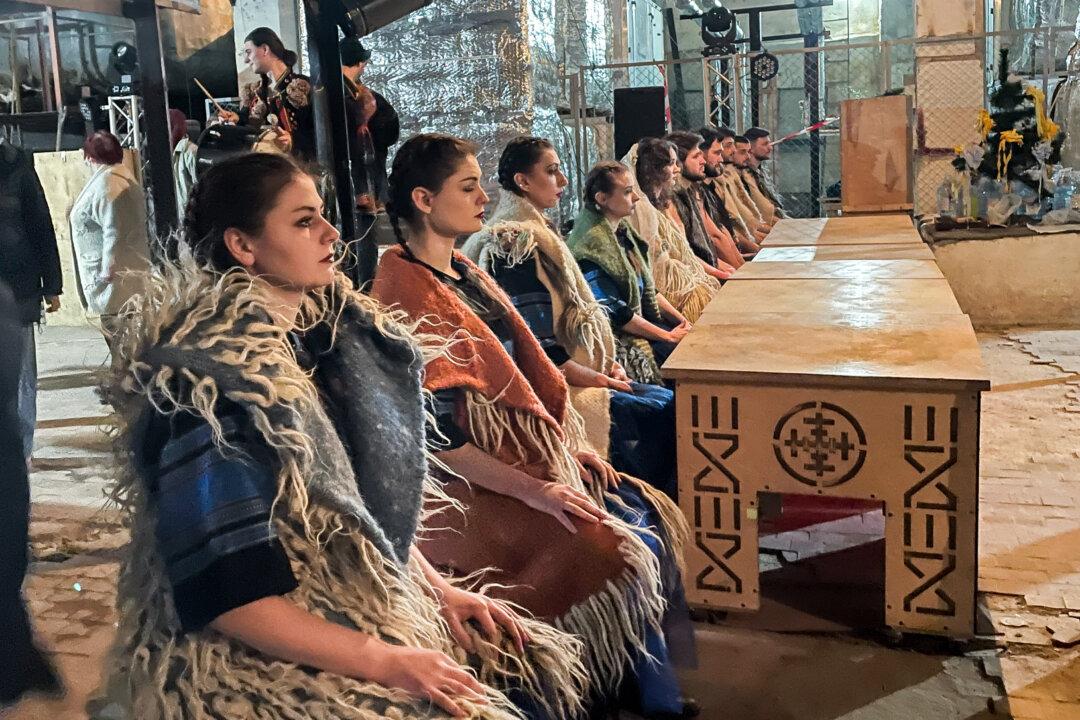IVANO-FRANKIVSK, Ukraine—A crowd of guests from an adjacent hotel filed into the bomb shelter in the cavernous basement of the Ivano-Frankivsk Regional Academic Ukrainian Musical Drama Theater on March 20.
The crowd filled up the dimly lit space, sitting on the makeshift tiered benches in the back. The fogging machines, theatrical lighting rigs, and sound equipment were barely discernible from the bunker’s piping, ductwork, and wiring.





